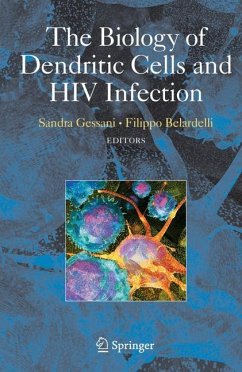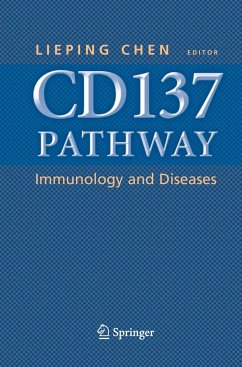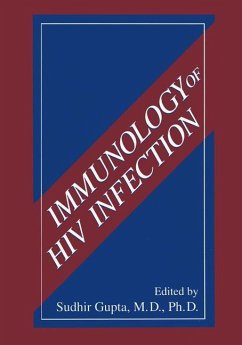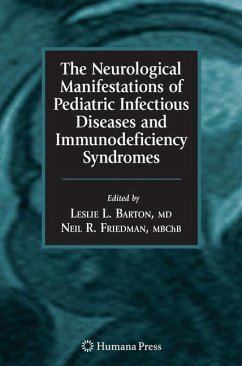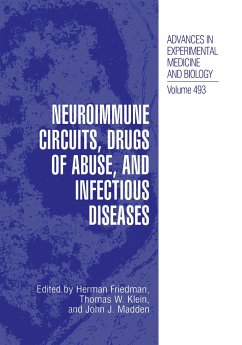
Neuroimmune Circuits, Drugs of Abuse, and Infectious Diseases
Versandkostenfrei!
Versandfertig in 1-2 Wochen
115,99 €
inkl. MwSt.

PAYBACK Punkte
58 °P sammeln!
Introduction and Perspectives This volume is based on the proceedings of the 7th annual symposium on the topic Neuroimmune Circuits, Infectious Diseases and Drugs of Abuse, Bethesda, Maryland, Oc- ber 7-9, 1999. This symposium, as in the past, focused on newer knowledge concerning the relationship between the immune and nervous systems with regards to the effects of drugs of abuse and infections, including AIDS, caused by the immunodeficiency virus. Presentations discussed the brain-immune axis from the viewpoint of drugs of abuse rather than from the subject of the brain or immunity alone. Th...
Introduction and Perspectives This volume is based on the proceedings of the 7th annual symposium on the topic Neuroimmune Circuits, Infectious Diseases and Drugs of Abuse, Bethesda, Maryland, Oc- ber 7-9, 1999. This symposium, as in the past, focused on newer knowledge concerning the relationship between the immune and nervous systems with regards to the effects of drugs of abuse and infections, including AIDS, caused by the immunodeficiency virus. Presentations discussed the brain-immune axis from the viewpoint of drugs of abuse rather than from the subject of the brain or immunity alone. The major aim of this series of conferences has been to clarify the consequences of immunomodulation induced by drugs of abuse in regards to susceptibility and pathogenesis of infectious diseases, both in man and in various animal model systems. The recreational use of drugs of abuse such as morphine, cocaine, and marijuana by large numbers of individuals in this country and around the world has continued to arouse serious concerns about the consequences of use of such drugs, especially on the normal physiological responses of an individual, including immune responses. Much of the recent data accumulated by investigators show that drugs of abuse, especially opioids and cannabinoids, markedly alter immune responses in human populations as well as in experimental animals, both in vivo and in vitro.



